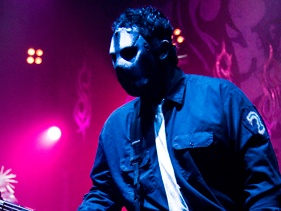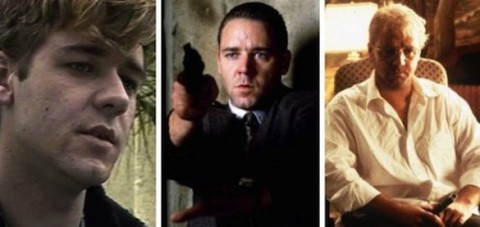‘He was always a man of the people, and he never forgot his roots,’ Des Moines radio director tells MTV News. By James Montgomery Paul Gray Three days after Slipknot bassist Paul Gray was found dead in an Iowa hotel room, those who knew him are still struggling to make sense of everything that’s happened. It’s not an easy thing to do. Though he wasn’t born in Iowa, Gray was still very much a local boy made good, having moved to Des Moines as a child. And as Slipknot’s fame grew, he made it a point to remain loyal to the scene — and the city — that gave him his start in music. “It’s just been a feeling of complete and utter disbelief, and I think lot of people are still shell-shocked,” Andy Hall, music director at Des Moines’ Lazer 103.3, told MTV News on Wednesday (May 26). “Paul was not just a guy on a poster on somebody’s wall; he was a son, a brother, a bandmate and a friend. And he was a great human being. … Des Moines has a very tight-knit music community, and anyone in it will tell you that Paul was one of the most kind and warm-hearted people they’ve ever known. He was always a man of the people, and he never forgot his roots.” Hall moved to Des Moines 10 years ago, and Gray was one of the first people he became friendly with. He said that even though Slipknot were well on their way to becoming a massively successful metal act, the bassist still remained humble, approachable and downright friendly — to everyone. “He was always quick with a smile and a hug and a ‘How you doing, brother?’ But it didn’t matter if you were his friend of many years or someone he’d just met; he would be very gracious to everyone,” Hall said. “He was kind of an imposing guy, but if you came up to him, took the time to converse with him, you’d have realized what a nice, kind guy he was.” Long before Slipknot hit it big, Gray was an integral part of the Des Moines scene. As a founding member of the group — and the only bassist it every employed — he provided the backbeat at their earliest gigs, at local bars like the Safari Club. And though those shows paled in comparison to the big-budget rippers they’d go on to play, they were just as energetic and impactful. Even in their earliest incarnation, Slipknot possessed a will that was unmatched. “They were always part of the fabric of the local scene. … Initially, they were playing clubs and band battles. And from the very start, they believed so intensely in themselves, even when the show was simple and the masks were homemade,” said Des Moines Register columnist Kyle Munson, who spent a decade as the paper’s music critic. “Here was a band willing to put on a show. They believed in themselves from the beginning, and that was the difference. They would have a power-saw onstage, shooting sparks across the stage. The early songs would have little disco jazz riffs thrown in there with the growls. They were a hybrid from the start. … No one could foresee how far they’d go, but that belief always made them stand out.” And from those formative gigs, the rock monster the world would come to know as Slipknot was born. To folks like Munson, their success brought an immense amount of civic pride — a pride that’s definitely taken a hit in the days since Gray’s death. Seems everyone who ever met him, spoke to him or even sat in the back of a rock club, eyes agog, and watched him rip, will miss him. “He always seemed to be a gentle soul and a peacemaker within the band. That’s what I’ve been hearing from people,” Munson said. “He wasn’t gregarious like [frontman] Corey [Taylor] or outwardly philosophical like [percussionist] Shawn [Crahan]. He was more introverted. But anyone will tell you about the happiness in his voice, his smile. There was a quiet joviality to him.” Share your memories of Paul Gray and Slipknot in the comments below. Related Videos Slipknot’s Paul Gray: 1972-2010 Related Photos Slipknot’s Paul Gray: A Life In Photos Related Artists Paul Gray Slipknot

View original post here:
Slipknot’s Paul Gray Remembered Fondly In His Iowa Hometown




























